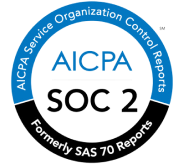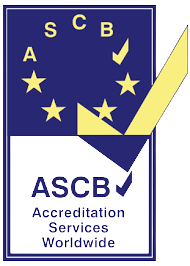As HR processes become increasingly digitised, the role of HR manager has shifted from a primarily administrative function to a more strategic one. HR managers are now expected to take a leadership role in driving digital transformation within their organisations. They must be able to identify areas where technology can be leveraged to improve HR processes and develop a roadmap for implementing these changes.
In addition, HR managers must ensure that employees are prepared for the changes that come with digital transformation. This includes providing training and support, as well as communicating the benefits of digitisation. HR managers must also work closely with other departments, such as IT and finance, to ensure that HR processes are integrated with other business processes.
Overall, the role of HR manager in HR digital transformation is critical. HR managers who are able to embrace technology and take a strategic approach to HR will succeed in the years ahead. They must be able to balance the needs of the organisation with the needs of employees while also staying up-to-date with the latest digital HR trends and technologies.
So the blog ahead will clearly explain all the important roles of HR managers in driving HR digital transformation from day one.
Want To Skip This Content Right Away?
Schedule a demo.

Role of HR Manager In Driving HR Digital Transformation In 10 Ways
Strategic Planning
HR managers play a key role in developing a digital HR strategy that aligns with the overall goals of the organisation. They need to be able to identify areas where technology can be leveraged to improve HR processes and develop a roadmap for implementing these changes.
Change Management
HR managers must ensure that employees are prepared for the changes that come with digital transformation. This includes providing training and support, as well as communicating the benefits of digitisation.
Process Optimisation
HR managers must constantly evaluate HR processes and identify areas that can be streamlined or automated to improve efficiency. They need to ensure that digital tools are being used effectively to drive efficiency and productivity.
Data Analysis
With the use of HRMS software in India, HR managers have access to more data than ever before. It's their responsibility to use this data to inform decision-making and identify areas for improvement. This role of HR manager defines that they should be comfortable working with data and be able to make data-driven decisions.
Collaboration
Successful digital HR transformation requires collaboration between HR and other departments. HR managers must be able to work closely with IT, finance, and other stakeholders to drive digital transformation. They need to ensure that HR processes are integrated with other business processes and aligned with overall business goals.
Employee Engagement
HR managers can use complete HR software in India to enhance employee engagement and foster a positive company culture. They can use tools like chatbots, social intranet, instant messaging, and meeting rooms to create a sense of community among employees. All this and more is easily available to optimise and utilise with uKnowva HRMS software.
Talent Management
HR managers can use data to identify top talent and develop targeted talent management programs. They can also use online HRMS tools to streamline the recruiting and onboarding process.
Compliance Management
HR managers can use payroll and expense management to manage compliance requirements and ensure that HR processes are in line with regulatory requirements.
Performance Management
HR managers can use uKnowva HRMS software to monitor and track employee performance. They can use data to identify areas for improvement and provide targeted training and development programs.
Leadership Development
HR managers can use the eLMS function embedded in uKnowva’s best HRMS software in India to provide leadership development programs and support the growth and development of future leaders within the organisation.
The Bottom Line
The role of HR manager is crucial, as we saw in the pointers explained above in the blog copy. They are the torchbearers of driving complete HR digital transformation. These managers also require the aid of smarter HRMS tools like uKnowva to automate the process from one point to another.
uKnowva helps to make employees self-reliant, independent, and more efficient. They do not have to chase their HR managers to get work done or resolve menial queries on time. This makes every department more reliable, independent, and strategically aligned with common business goals. In no time, the entire business unit can run on autopilot.
The role of HR manager would then be purely strategic and help employees execute the necessary tasks on priority. uKnowva HRMS can take care of the rest of the tasks, which are repetitive and mundane.
Contact us for a demo.
FAQs
How can HR managers work collaboratively with IT and other departments to drive digital transformation?
To work collaboratively with IT and other departments, HR managers should:
- Foster open communication and establish clear goals for digital transformation initiatives.
- Involve IT and other departments in the planning and implementation of digital projects to ensure buy-in and alignment across the organisation.
What are some challenges that HR managers might face when driving HR digital transformation?
Here are some challenges that HR managers might face when driving HR digital transformation:
- Limited budget and resources for implementing new digital tools and technologies.
- Lack of digital skills and knowledge within the HR department.
- Integration and compatibility issues when trying to connect disparate HR systems and platforms.
- Ensuring data privacy and security when using new digital tools.
- Identifying the right digital solutions for specific HR needs and ensuring they align with the organisation's overall strategy.
- Managing and maintaining new digital tools and technologies once they have been implemented.
- Ensuring compliance with relevant regulations and standards when using new digital HRMS tools.
What skills do HR managers need to have to drive successful digital transformation in HR?
Here are some skills that HR managers need to have to drive successful digital transformation in HR:
- Strategic thinking and the ability to align digital transformation initiatives with the organisation's overall goals and objectives.
- Understanding of emerging digital technologies and their potential applications in HR.
- Data analysis and interpretation skills to make informed decisions and measure the success of digital transformation initiatives.
- Communication skills to effectively communicate the benefits and implications of digital transformation to employees and stakeholders.
- Change management skills to manage resistance to change and ensure a smooth transition to digital HR processes.
- Project management skills to effectively plan, implement, and manage digital transformation initiatives.
- Collaboration and relationship-building skills to work effectively with IT and other departments involved in digital transformation efforts.
- Creativity and innovation to identify and implement new and improved digital solutions for HR processes.
- Problem-solving skills to identify and address challenges and roadblocks that arise during digital transformation efforts.












